Pollinators and the future of food

Bumblebee, Southern Norfolk Sand Plain, ON (Photo by Mhairi McFarlane/NCC Staff)
Starting my day with a variety of fresh fruits is my version of a fresh cup of coffee. One of my fondest memories is from my time in Vancouver several years ago, visiting a nearby park filled with highbush blueberries. A friend and I would spend...
Experiencing Canada’s prairie grasslands for the first time
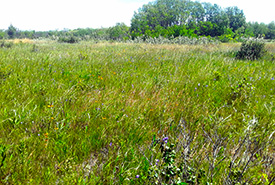
Tall grass prairie in Manitoba (Photo by Jessica Sánchez-Jasso)
Colourful, surprising and full of life, grasslands of the Canadian Prairies are one of a kind. My first visit there deepened my passion for biology and reminded me why I fell in love with this field. From my earliest memories, I can recall...
The swamp’s unlikely hero: a beetle
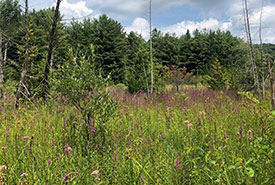
Purple loosestrife at Beaver Meadow wetland, ON. (Photo by Jen Arbeider/NCC staff)
When I first started as a conservation technician with the Nature Conservancy of Canada (NCC) in May, I was very excited to observe unique species of plants and wildlife, as well as work in a diversity of habitats and make a difference in...
A rare encounter with a rare species
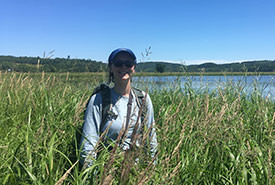
Allison Patrick stands among the tall grasses and wildflowers at NCC's property on Hog Island. (Photo by NCC)
As a conservation biologist with the Nature Conservancy of Canada (NCC) in Fredericton, I spend each summer working in some of the most beautiful parts of New Brunswick and Prince Edward Island. One of my favourite areas in New Brunswick is...
April showers bring May flowers, and May flowers bring…flies?
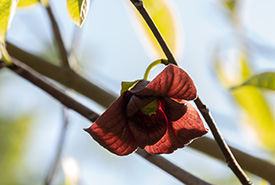
A pawpaw flower (Photo by Andrea J. Moreau)
Come spring, natural spaces are always buzzing with activity. The warmer weather and sweet floral scent carried on the wind attract people and prospective pollinators alike. I was no exception to this rule on one late May afternoon, excitedly...
A day in the life of a field biologist
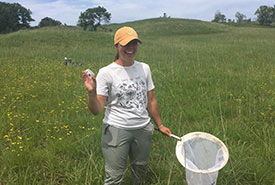
Field technician Breanne Kenner with a successful catch! (Photo by NCC)
There are numerous findings in the world of science, and conservation biology specifically, that would not be possible without field work. As part of my conservation internship with the Nature Conservancy of Canada (NCC), I have been given the...
Moths: Amazing, beautiful, important and in need of study
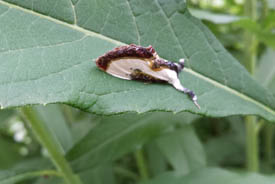
Wood nymph moth (Photo by NCC)
Moths are amazing creatures that are only beginning to receive attention from naturalists. Many people have difficulties determining the difference between moths and butterflies. They can be similar looking, as they both have scales that cover...
The buzz about bumble bees
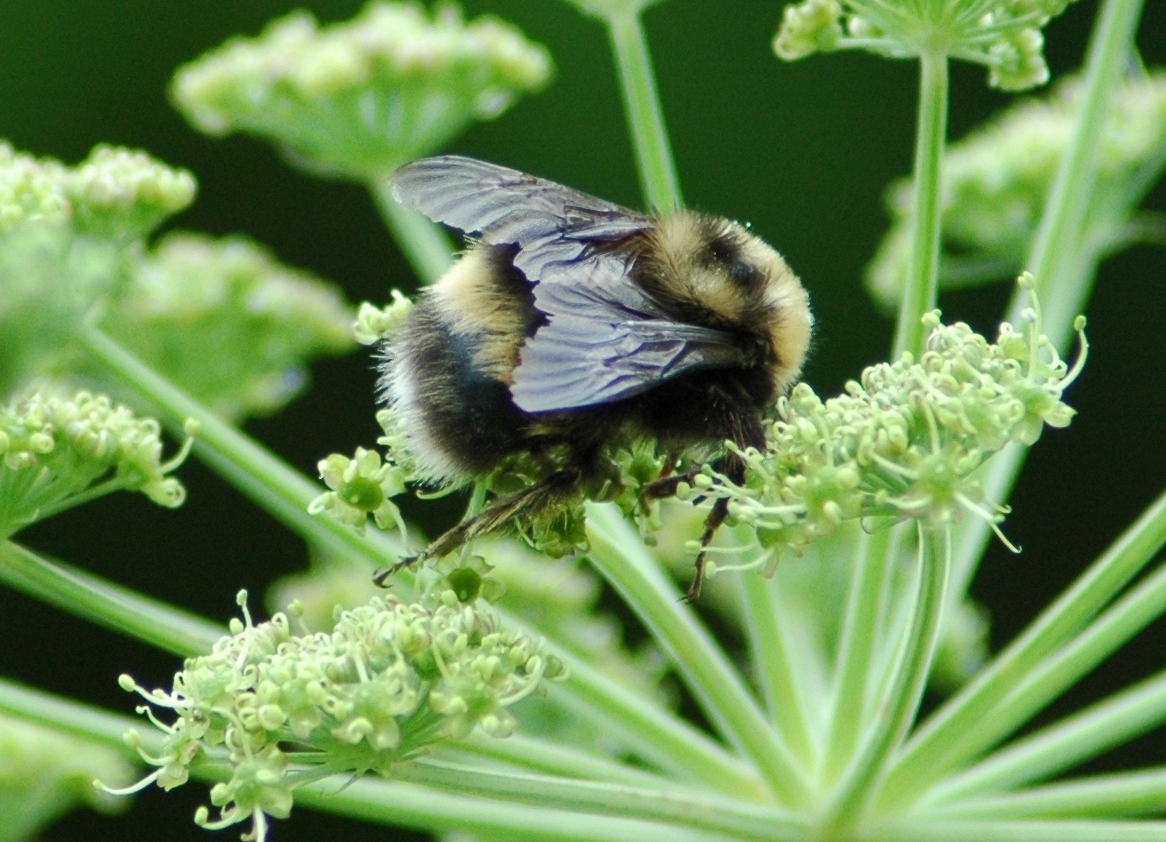
Western bumble bee (Photo by sydcannings, CC BY-NC 4.0)
The western bumble bee is a medium-sized (measuring one to two centimetres in length) bumble bee, with a band of yellow hair across its thorax (the area between its head and abdomen), in line with the base of its wings. It also most often has a...
My native species bring all the pollinators to the yard
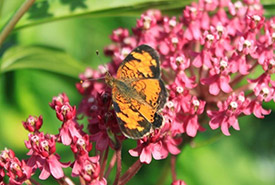
Northern crescent butterfly on swamp milkweed flowers (Photo by Jaimee Morozoff/NCC staff)
Now that spring has finally made its way across Canada (in some places it was slower in arriving than others), gardening season is in full swing! With all of the choices present at our local nurseries and big box stores, it is easy to get carried...
What happens to invasive species in the winter?
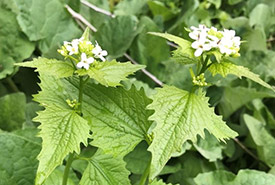
Second-year garlic mustard plant (Photo courtesy Invasive Species Centre)
With the change in seasons, invasive species may become out of sight and out of mind. But they always seem to come back every year. So where do they go in winter? Researchers are working to answer this question by investigating how invasive...

